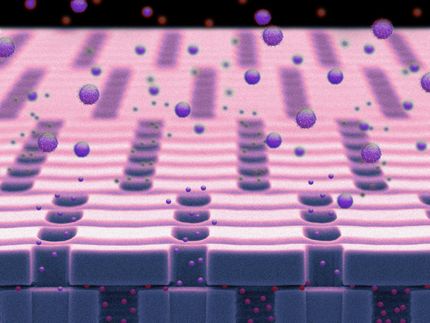MedImmune and National Institutes of Health Begin Clinical Testing of a Live, Attenuated Intranasal H5N1 Vaccine
Advertisement
MedImmune, Inc. announced that the National Institutes of Health (NIH) has begun enrolling participants in a Phase 1 study of an intranasal H5N1 influenza vaccine candidate based on the company's live, attenuated vaccine technology. Investigators at MedImmune and Johns Hopkins Bloomberg School of Public Health Center for Immunization Research, where the study will be conducted, are hopeful that a live, attenuated intranasal influenza vaccine would be as effective against potential pandemic A strains as it has been shown to be against seasonal A strains of influenza.
"We believe that our influenza vaccine technology may provide several advantages over the flu shot that will be critically important in protecting people against a pandemic influenza virus," said James F. Young, Ph.D., president, research and development. "In pivotal clinical trials conducted in children 6 months to 59 months of age, our live, attenuated intranasal vaccine technology has been shown to be significantly more effective against seasonal A strains, including those both matched and not matched to the strains used in the vaccine. Additionally, because of its intranasal delivery, our technology may provide a faster and broader immune response, including providing both systemic and mucosal protection at the site where a flu infection takes hold - which is in the nose."
Results from a recently completed Phase 3 clinical study showed that MedImmune's next-generation, investigational influenza vaccine, CAIV-T (cold adapted influenza vaccine, trivalent), was 89 percent more effective than the flu shot in reducing influenza illness caused by matched H1N1 A strains and 79 percent more effective than the flu shot against circulating mismatched H3N2 A strains. CAIV-T is the investigational, next-generation of MedImmune's currently marketed vaccine, FluMist(R) (Influenza Virus Vaccine Live, Intranasal).
The H5N1 vaccine candidate is being developed under MedImmune's Cooperative Research and Development Agreement (CRADA) with the NIH's National Institute of Allergy and Infectious Diseases (NIAID) to produce and test versions of MedImmune's live, attenuated intranasal influenza vaccine for use against different subtypes of potential pandemic influenza strains. This first study is an open-label Phase 1 trial designed to evaluate the safety and immunogenicity of an attenuated, intranasal H5N1 vaccine (based on the A/VietNam/1203/2004 H5N1 strain) in approximately 20 healthy individuals from 18 to 49 years of age. Participants in an isolation unit will receive two doses of vaccine administered 28 to 62 days apart.



























































